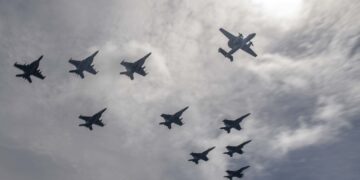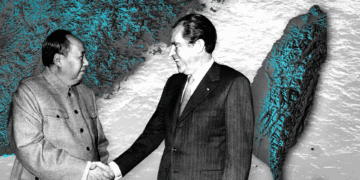April 10, 2023
Security theater risks Taiwan’s autonomy
FOR IMMEDIATE RELEASE:
April 10, 2023
Contact: press@defensepriorities.org
WASHINGTON, DC—Today, China concluded its multi-day military exercises surrounding Taiwan which were launched in response to Taiwanese President Tsai Ing-wen meeting with House Speaker Kevin McCarthy in Los Angeles. Defense Priorities Director of Asia Engagement Lyle Goldstein, currently on a trip visiting China and Taiwan, issued the following statement in response:
“China’s multi-day military exercises around Taiwan are a predictable response to last week’s meeting between Taiwanese President Tsai Ing-wen and Speaker Kevin McCarthy, a visit that was neither necessary nor advisable. U.S. lawmakers continue to use Taiwan as a prop, increasing tensions and risks for no sensible purpose.
“It is notable that President Tsai specifically asked Speaker McCarthy to avoid an official trip to Taiwan, understanding it would cause another crisis for the island’s security less than a year after his predecessor visited. Then-Speaker Pelosi’s highly-publicized trip to Taipei gave Beijing an excuse to conduct the largest military exercises around Taiwan in history, including practice for a hypothetical blockade of the island. Similar PLA exercises, which just concluded, increase tension at a time when U.S.-China relations are at a low point.
“The U.S. has no vital security interest in Taiwan. It is not a treaty ally, nor is it crucial to the defense of actual U.S. treaty allies, like Japan or the Philippines. The best approach to prolong Taiwan’s autonomy is to exercise restraint and reinforce the ‘One China’ agreement, which has kept the peace for more than four decades. U.S. officials should also maintain ‘strategic ambiguity’ and take other steps to encourage Taiwan to defend itself in a more serious way—chiefly by pursing an asymmetric military strategy that drives up the cost of amphibious invasion for China. To date, Taipei has shown too little interest in such measures. Using Taiwan for political theater risks Taipei’s autonomy and potentially puts the U.S. and China on a collision course toward a catastrophic and unnecessary war.”
More on Taiwan

Featuring Lyle Goldstein
January 20, 2026

Featuring Lyle Goldstein
December 30, 2025






